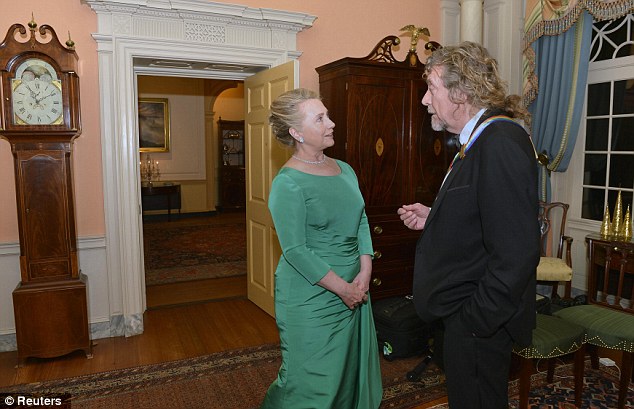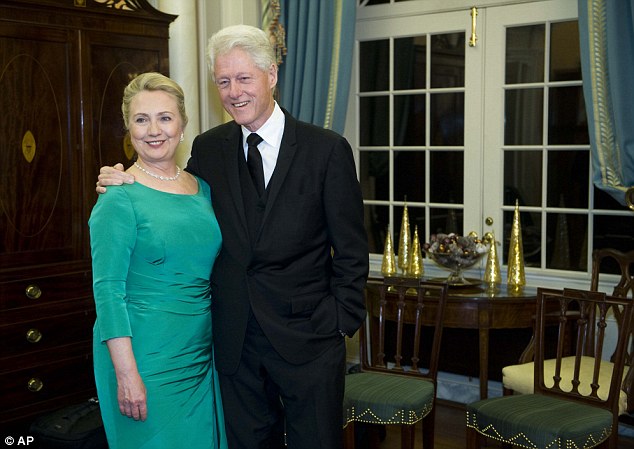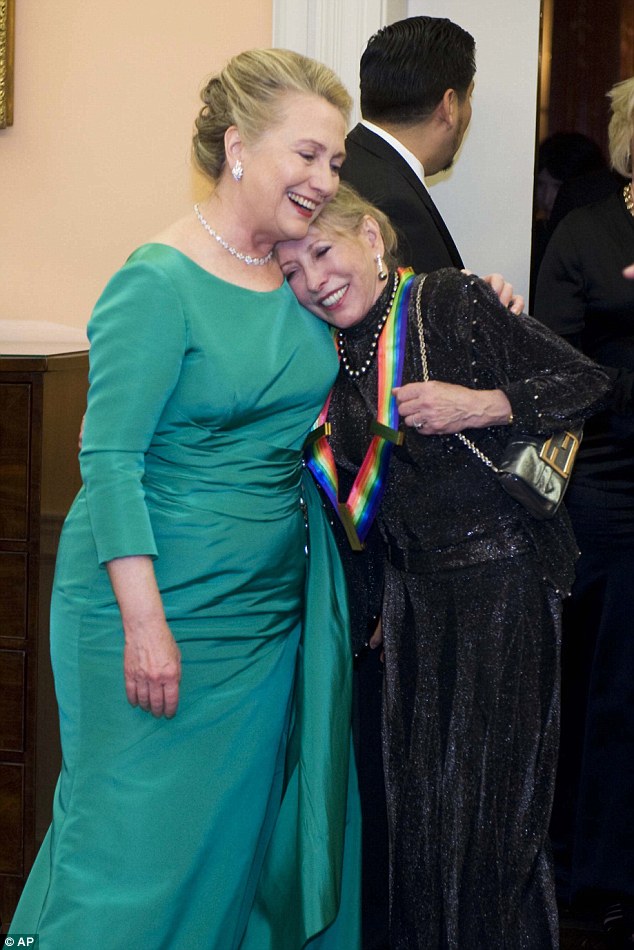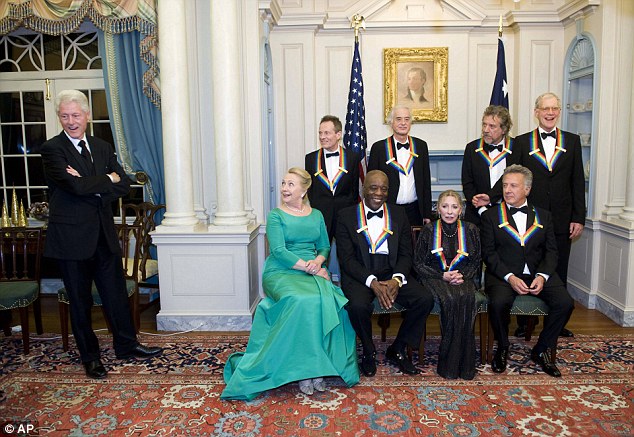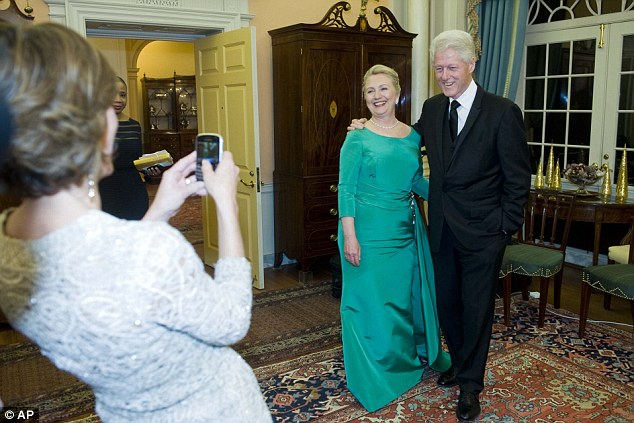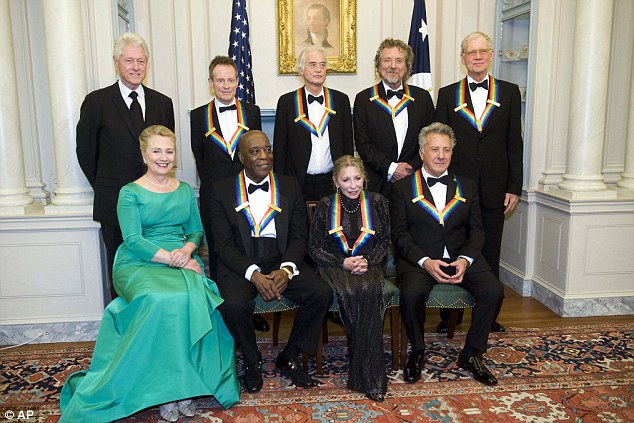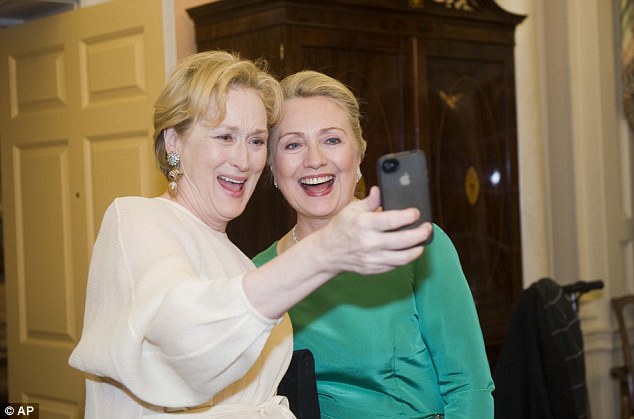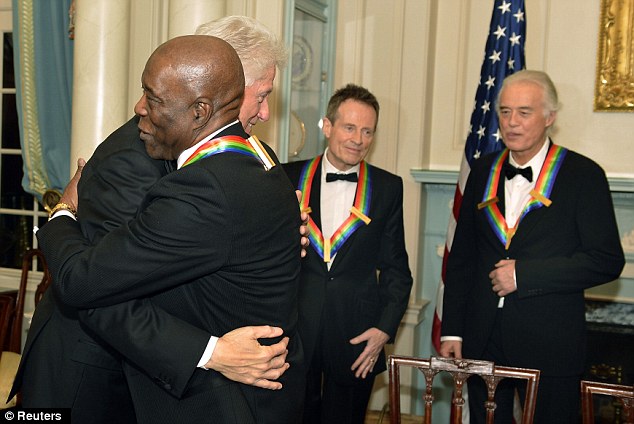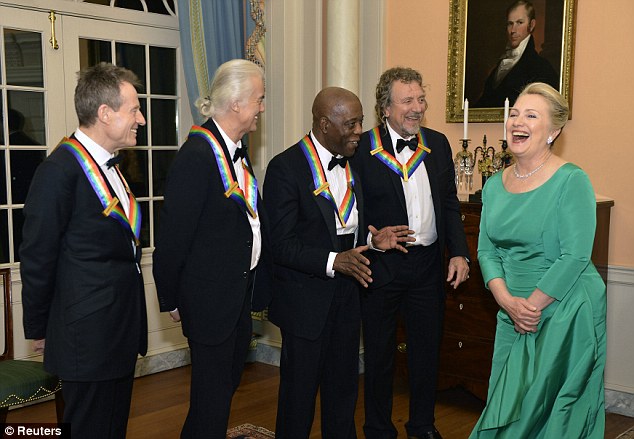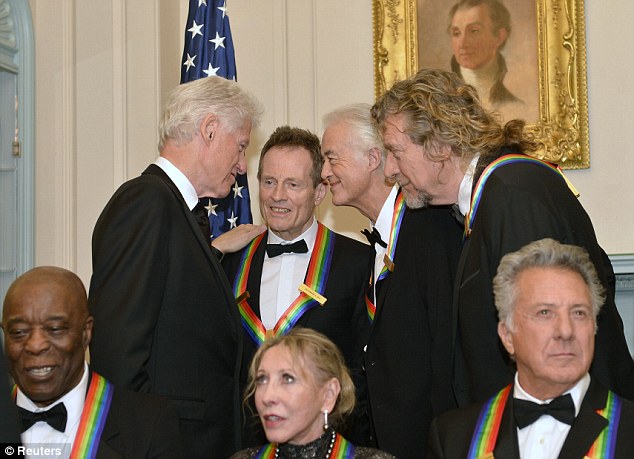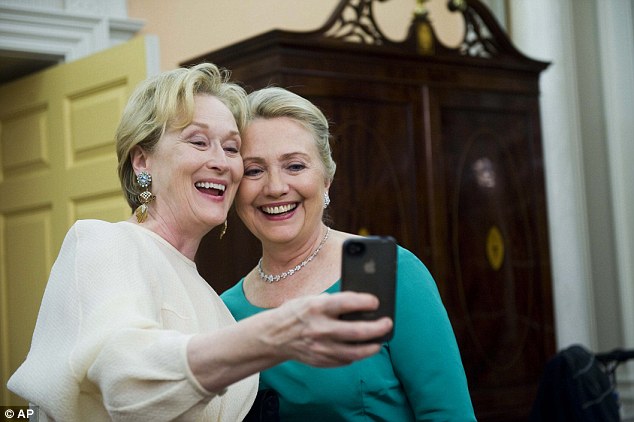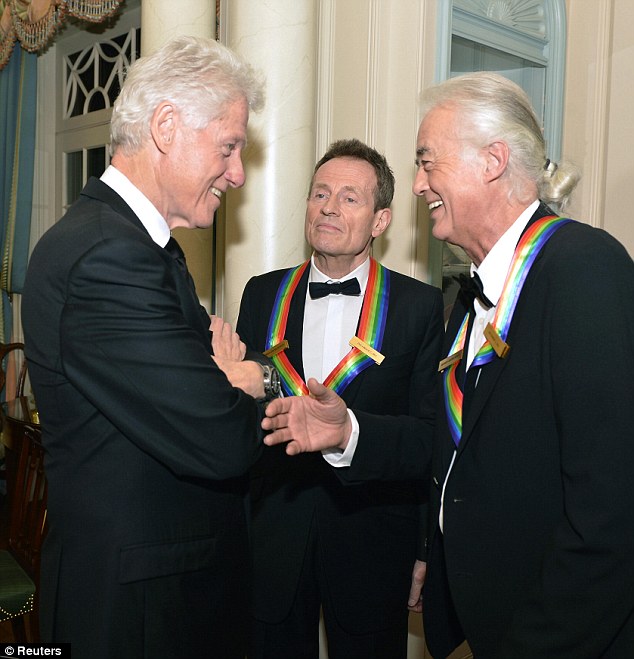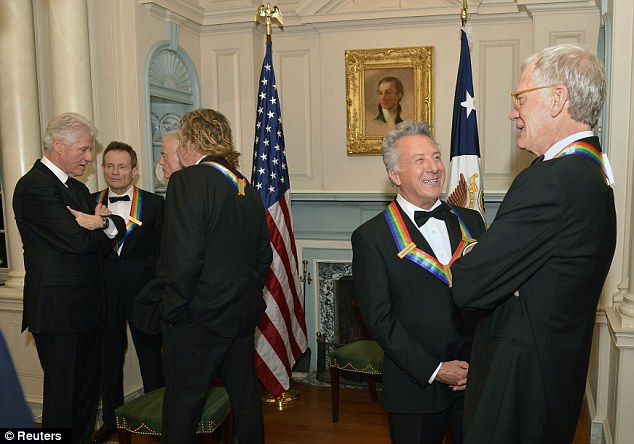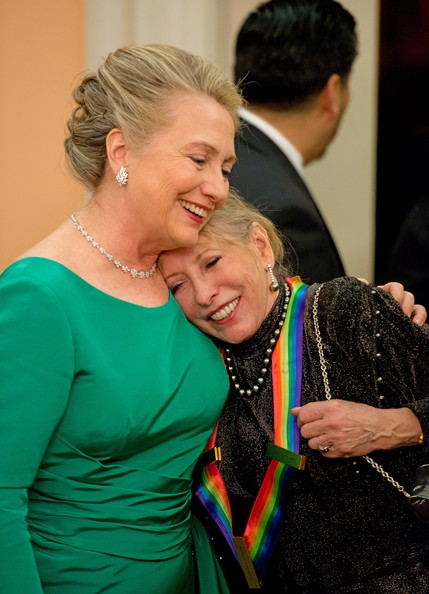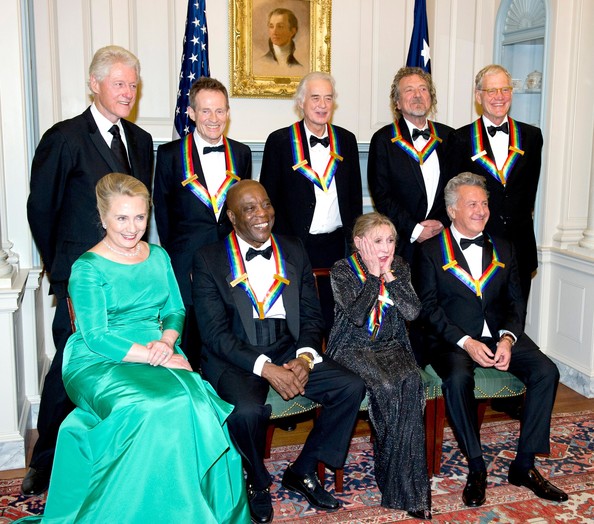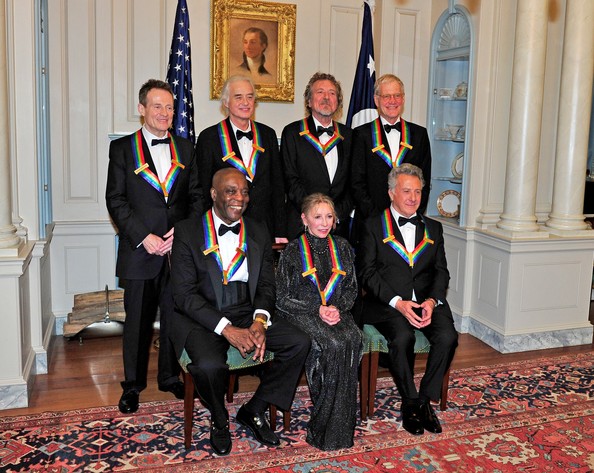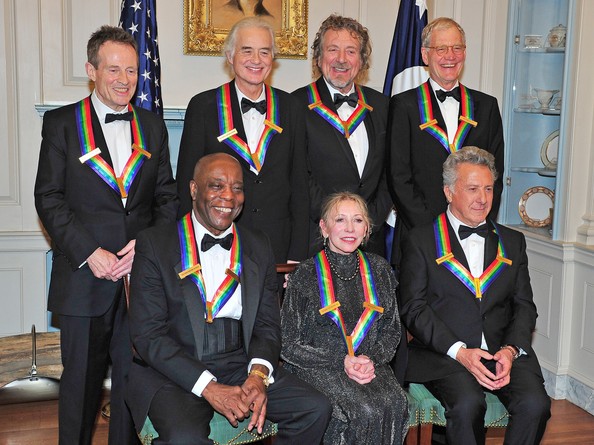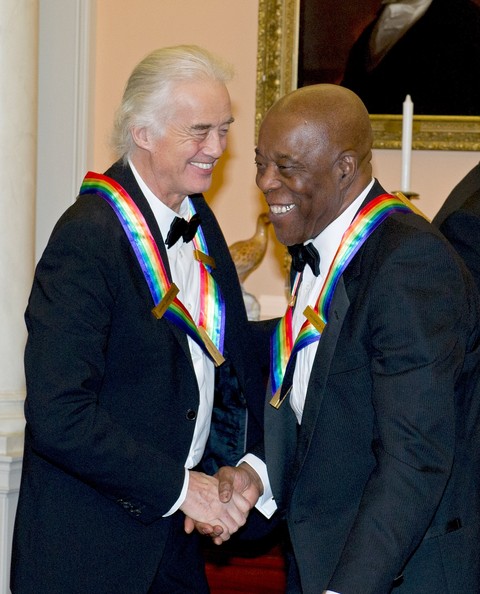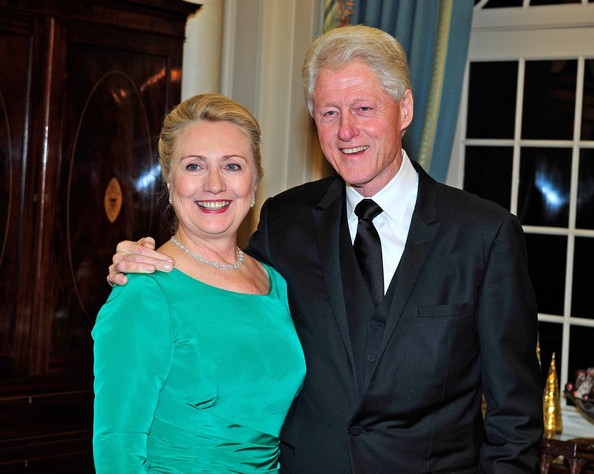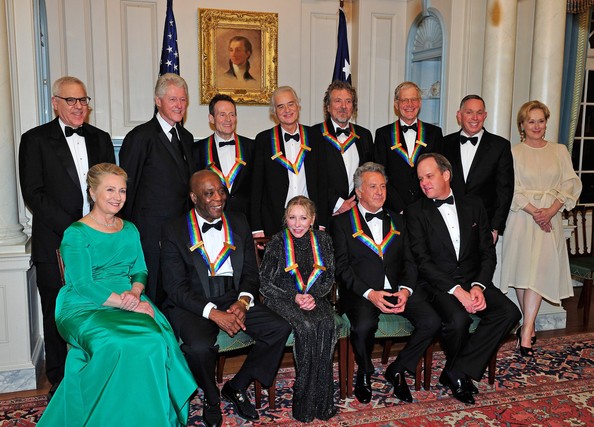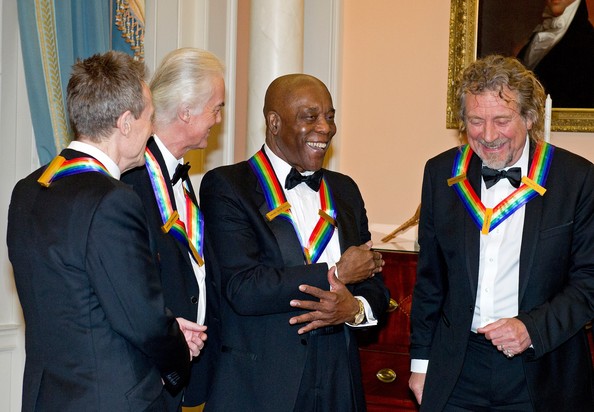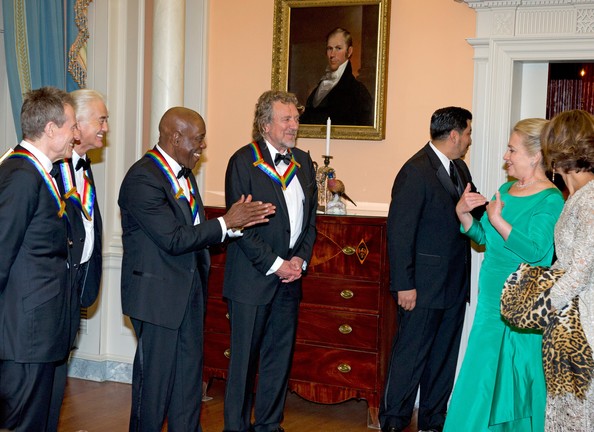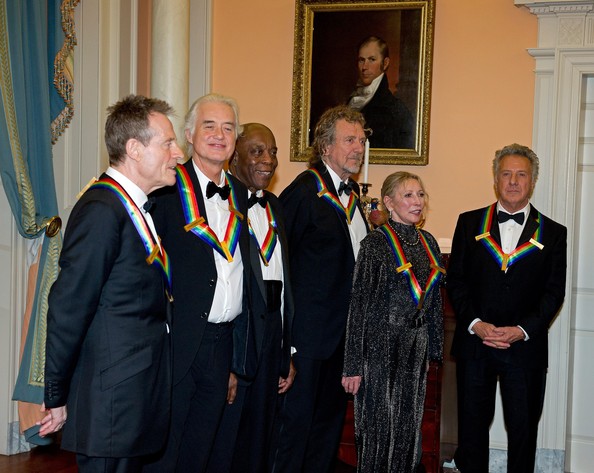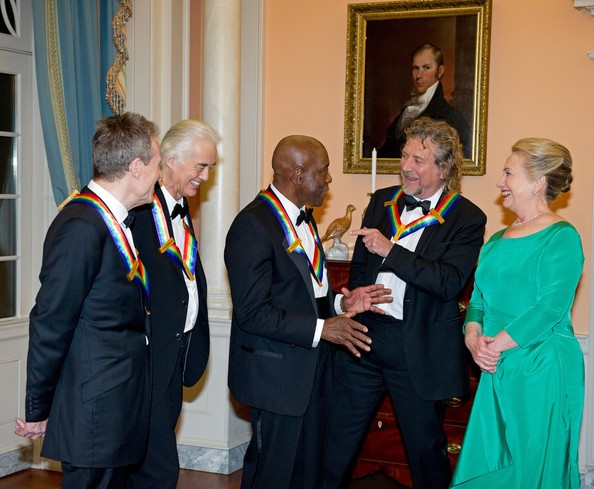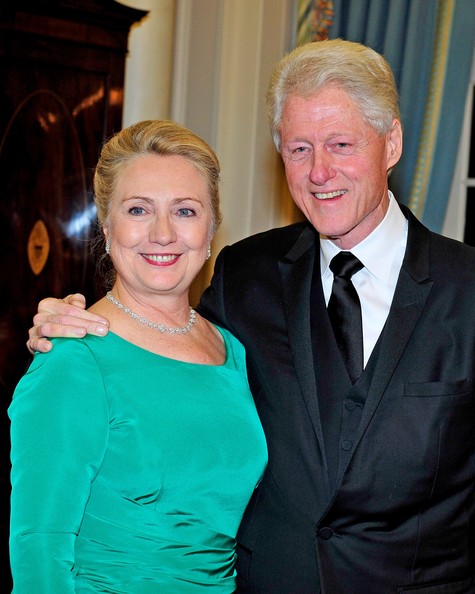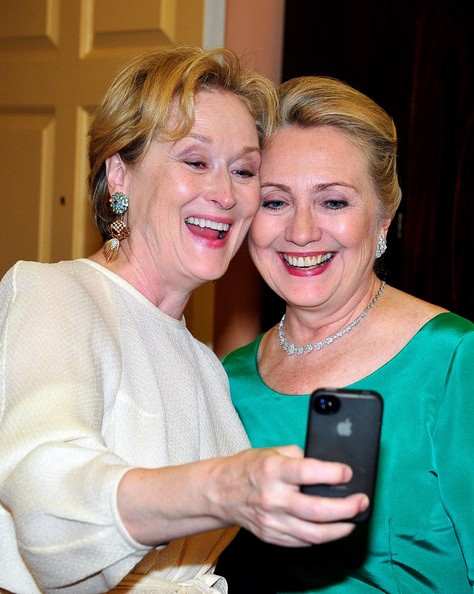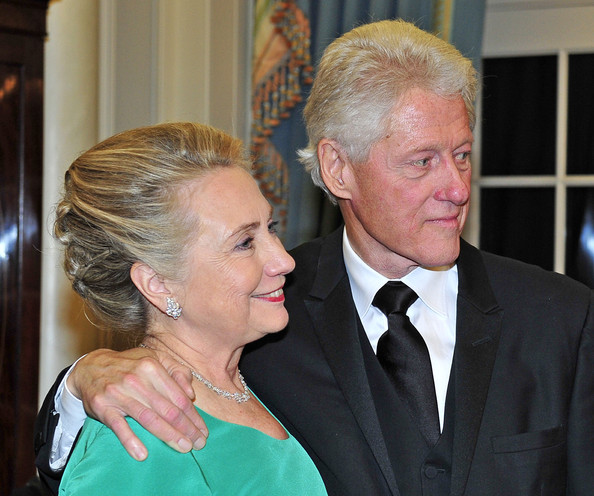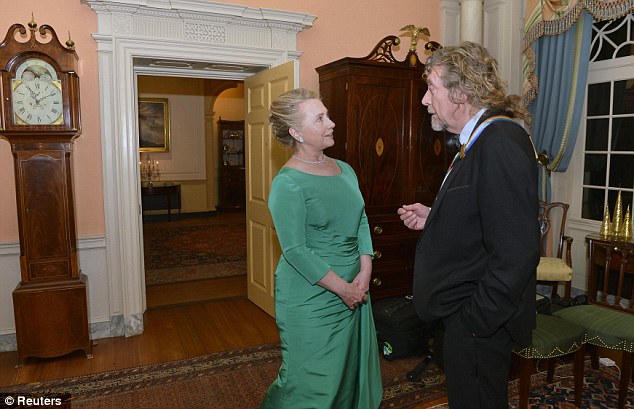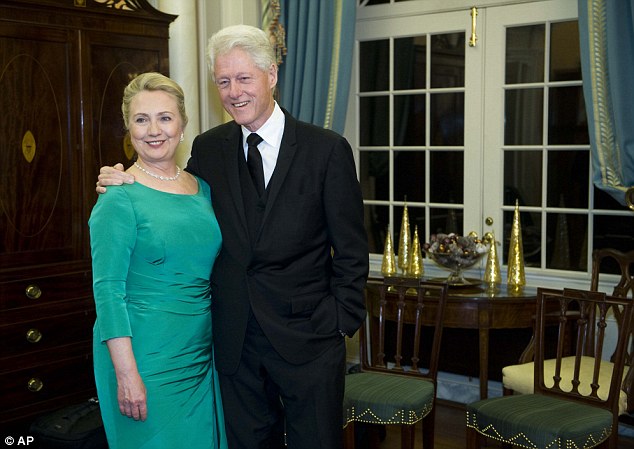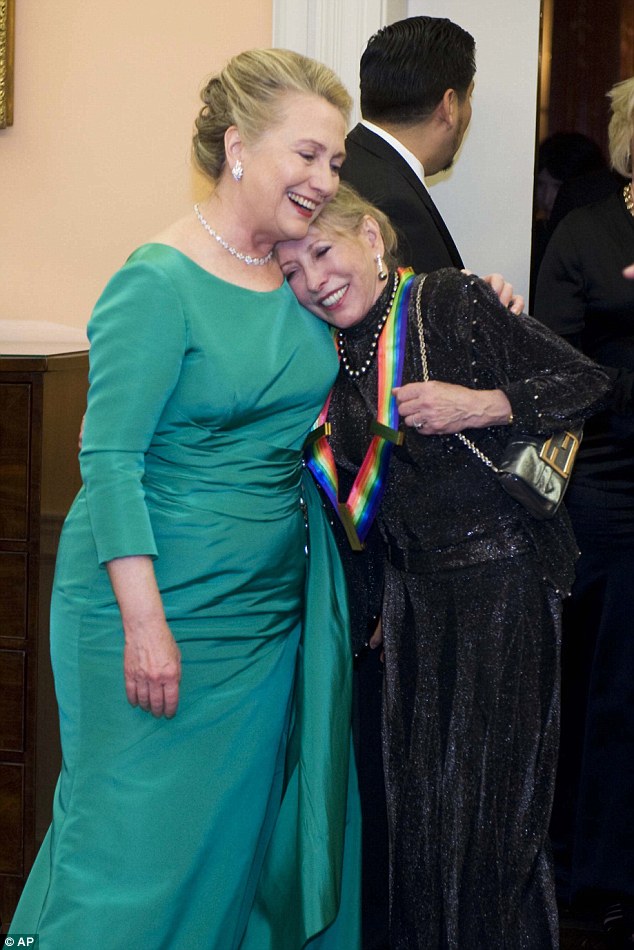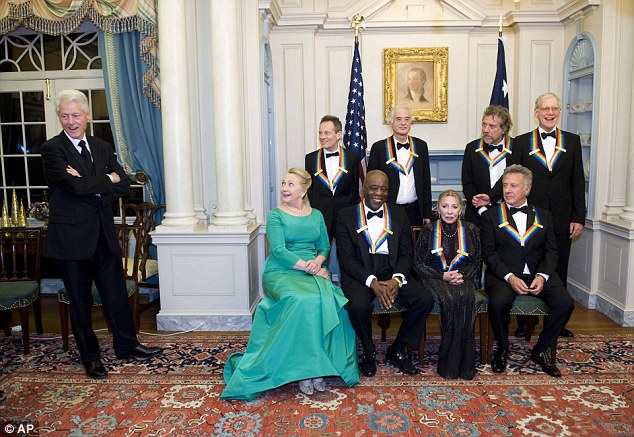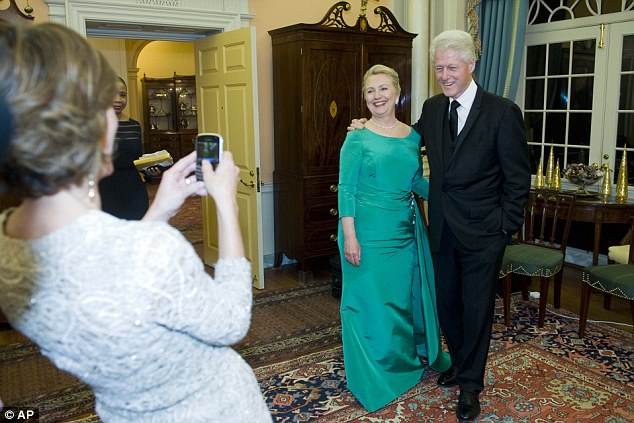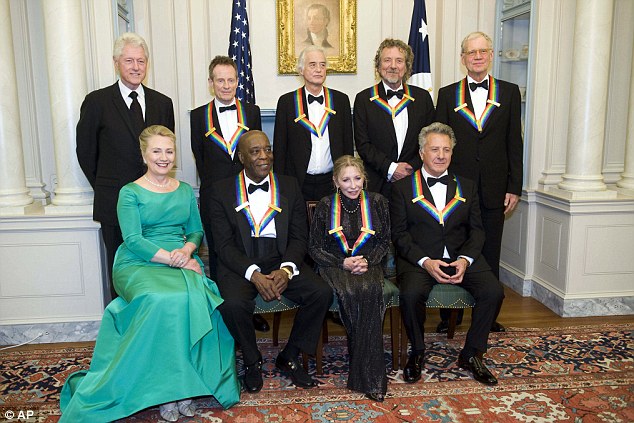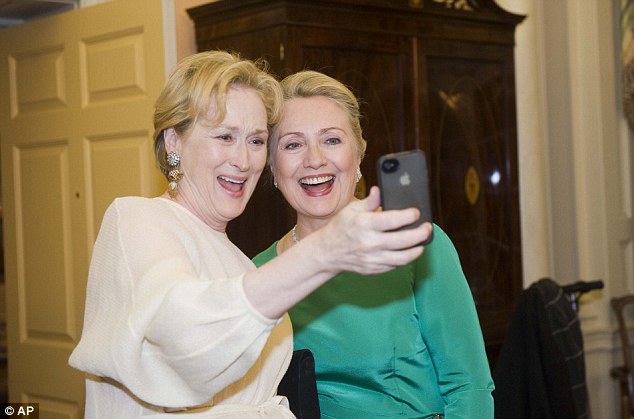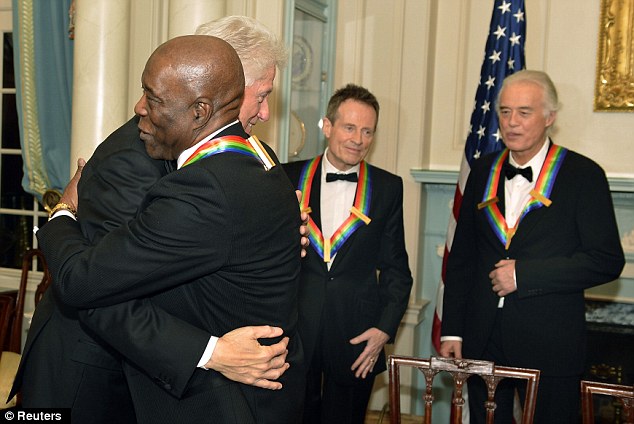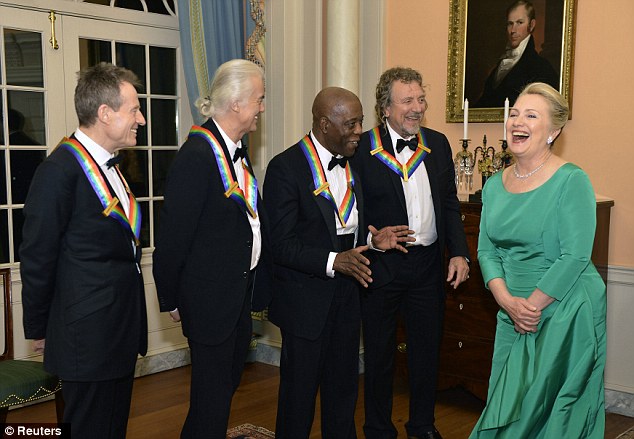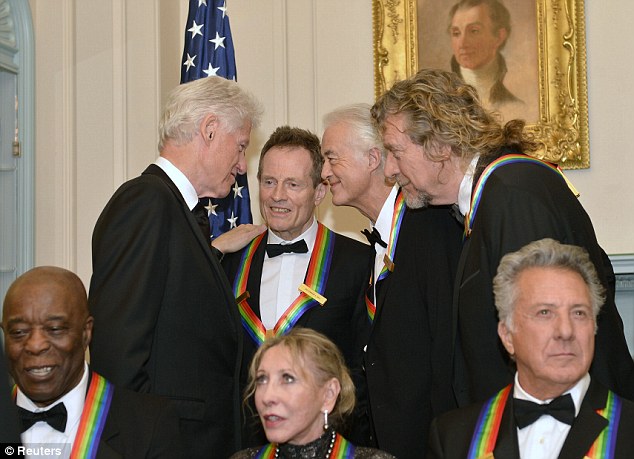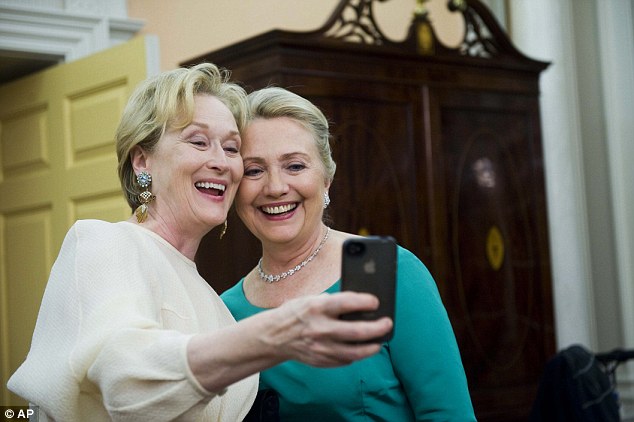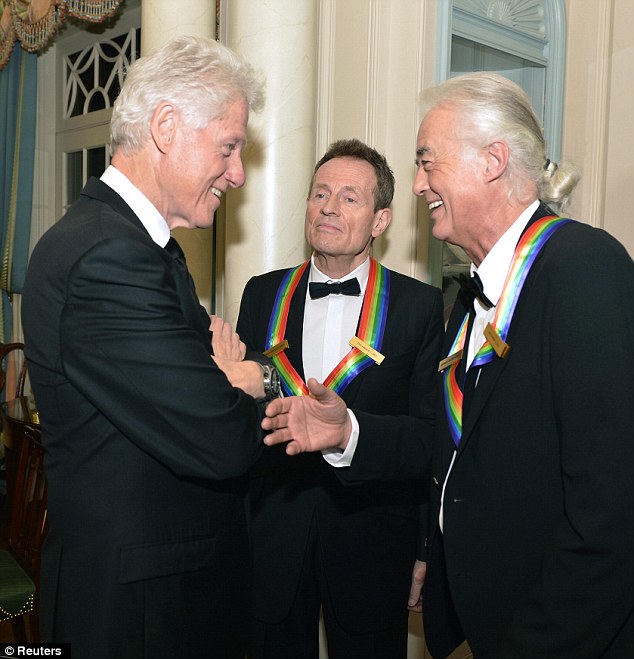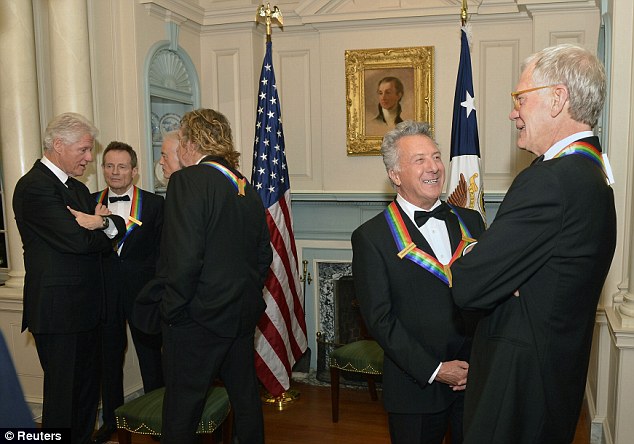Here are Mme. Secretary's remarks.
Remarks at the 35th Annual Kennedy Center Honors
RemarksHillary Rodham Clinton
Secretary of StateU.S. Ambassador Kenneth MertenBenjamin Franklin RoomWashington, DCDecember 1, 2012
Well, we’re going to give everyone a minute to get back from taking a break or sitting down or coming off of the terrace outside. As we begin the program for this 35th Kennedy Center Honors, one of the highlights of the year here in Washington by any measure, and especially exciting this year as we honor a group of legends and icons as diverse as they are talented. We have in our group of honorees tonight a broad cross-section of talent and energy from comedian to chameleon, ballerina to bluesman, and three men so synonymous with rock and roll they need no more description than Page, Plant, Jones. (Laughter.) And I am delighted to welcome back one of last year’s honorees who has graciously agreed to be the MC for the evening, Meryl Streep. (Applause.)
You are all in for a treat. I had the extraordinary experience earlier this year at the Women of the World conference in New York of being introduced by Meryl, and I’ve decided to bring her along every chance I get. (Laughter.) Now, of course, two of the people who make this night so special aren’t with us. It’s the first time they’ve missed the dinner in 35 years. George Stevens, who conceived of the Kennedy Center Honors and produces them each year, and Liz Stevens, who chairs this dinner every year, happen to be in Hollywood. Michael, their son, told me that George wouldn’t leave until the rehearsal was over, so we hope they’re in Hollywood, because he didn’t get on a plane until sometime mid-afternoon.
George is receiving an honorary Academy Award for his lifetime of contributions to film and the performing arts, including these awards. (Applause.) They will be back in time for tomorrow’s gala, but tonight we send our congratulations long-distance.
I am sure, like many of you, I am a fan of all of this year’s honorees. Now speaking personally, who hasn’t, among us, fallen in love with Dustin Hoffman at some point or another? (Applause.) In a lifetime of roles, there really is something for everyone – handsome leading man in The Graduate, handsome leading woman in Tootsie – (laughter) – handsome red panda in Kung Fu Panda – but a lifetime of such exhilarating performances, making you cry, making you laugh, making you think. And we are delighted that he and his beautiful family are with us tonight.
Now Buddy Guy – (applause) – actually, Buddy Guy and Led Zeppelin have been part of the soundtrack of our lives. I grew up with Chicago blues and married Delta blues – (laughter and applause) – and I think my husband is especially happy to be here tonight because he may get to say a few words about Buddy Guy. He’d rather be playing with you, but he’ll stick to talking, I hope. (Laughter.) And then of course, when we were at law school, which seems so long ago, back in the 1970s, a decade of terrible clothes but good music, Led Zeppelin was always coming out of what we called in those days “record players.” And even forty years later, there is something about their music that speaks to the unbound joy and possibility of youth.
Now you may remember that earlier this year, Buddy Guy managed to get President Obama to do a few bars of “Sweet Home Chicago.” And now some of you may be looking a little nervous here, because he may be trying to get one or more of you to do a few bars of something. But it won’t be me; not even Stairway. (Laughter.) But it will be a reminder of how well our President sang that night, which I think was worth a couple of points in the polls, myself.
And of course for Chelsea and me, ballet was a big part of her life. She performed in the Washington Ballet, went to so many ballets over the years. And there is such a great sense of anticipation tonight in being able to honor a ballerina that has meant so much to so many. And I was thrilled to see so many of the greats of ballet here tonight. I think that tomorrow should be a special treat for anyone who loves the ballet as we honor Natalia Makarova and what she has meant to the art. (Applause.)
And then there is David Letterman – (laughter) – the big guy, as they call him. (Applause.) David and I have a history. (Laughter.) I have been a guest on his show several times, and if you include references to my pantsuits, I’m on at least once a week. (Laughter.) I wanted to read you a top ten list to celebrate – (laughter) – Dave’s life of contributions, but unfortunately the State Department does not have a desk officer who covers Wahoo, Nebraska, or wherever the home office is these days. But there I was, being gracious, the hostess of the evening, and Dave and his beautiful wife, Regina, came through. And I greeted her and said how happy we were to have her, and greeted Dave and then said, “Look, Dave, I took my pants off for you.” (Laughter and applause.) And Dave without missing a beat said, “I don’t think you meant to say that.” (Laughter.) And Dave, you’ve got to be reminded that what happens here stays here. (Laughter.)
But Dave is probably wondering what he’s doing in this crowd of amazingly talented – (laughter) – artists and musicians. (Applause.) But let me hasten to add we are not wondering. For all of the teasing over the years that you’ve engaged in and some of us have had the fun of engaging with you, we’ve always recognized that talent. It is hard to do what you do every night, and while you always make us laugh, you also make us think.
So these are performers of exceptional skill, matchless ability; but there’s a common strain running through all of their careers, and that is a willingness to take risks. They have refused to be boxed into one genre or category, and in the process, they’ve inspired a whole generation of artists. That is the great beauty of art. It’s a canvas big enough to hold every crazy idea and find a home for all of the boundary pushers. And all who have worn the rainbow laurels of the Kennedy Center Honors have made it here because they refused to accept the world as it is or the limitations that someone or society tried to place on them. They insist on exploring what could be, they challenge our prejudices, and change our perspectives.
Now, art is a calling that not only celebrates doing things differently, it demands it. And I see this in artists around the world, the desire to create rather than conform. The yearning to share the uniqueness we each hold inside is universal. And art is an outward expression of our common human dignity that certainly we here in the State Department work so hard to defend and uphold every day.
Now, in my line of work, we talk often about the art of diplomacy. I really like saying that because so many of the building blocks for art and diplomacy are the same. We have to be willing to try new things, occasionally take big risks. We strive to find a common language, whether that means riffing on an established theme or improvising in the moment, and at base it is always, always about making people’s lives a little bit freer, even a little bit better in some small way.
So the arts and diplomacy actually do go hand in hand. They play out on world stages and reflect our common need to build bonds of understanding with others. Tonight, we honor an artist who actually braved one of the great schisms of the modern world, because when Natalia defected from the Soviet Union in 1970, she risked everything to have the freedom to dance the way she wanted to dance, a freedom that at the time was only available to her in the West.
And when the Kirov Ballet returned to London 18 years later, their first visit since her defection, she was in the audience on opening night, and a few short weeks later, she was on the stage with them. It was a surprise performance, the first time a Russian defector was allowed to perform with a Soviet troop. The negotiations had been in the works for months. It was only approved by the Kremlin at the last minute. In fact, I’m told the Kirov corps had to borrow Swan Lake costumes from the Royal Ballet.
She, of course, turned in a flawless performance. It was an amazing instance of glasnost brought to light. And for all the political overtones and the tensions, it was first and foremost a beautiful human moment. After a thunderous ovation, the Kirov dancers gave her the honor of the last solo bow. She then turned around and offered her final bow to her former troop. Art and diplomacy, indistinguishable.
So I would like to thank these artists for the moments of connection they have given all of us over the years. Thank you for never stopping to take risks. Thank you for having the courage to create. And so for me it’s a bittersweet night, because this will be my last opportunity to host you here in the State Department, and I want to thank the Kennedy Center for the extraordinary cooperation and partnership that we have had over the years, but particularly these last four years.
And on that note, I want to welcome the Kennedy Center’s chairman, David Rubenstein, to the stage so that he can begin the main event. He’s done a wonderful service for the Kennedy Center, and he’s also done a wonderful service for helping us keep these diplomatic rooms at the State Department so beautiful. And he’s also pretty funny himself. So please join me in welcoming the other
Bill and Hillary Clinton Host the Kennedy Center Honorees at the State Department
December 2, 2012 by still4hill | Edit
